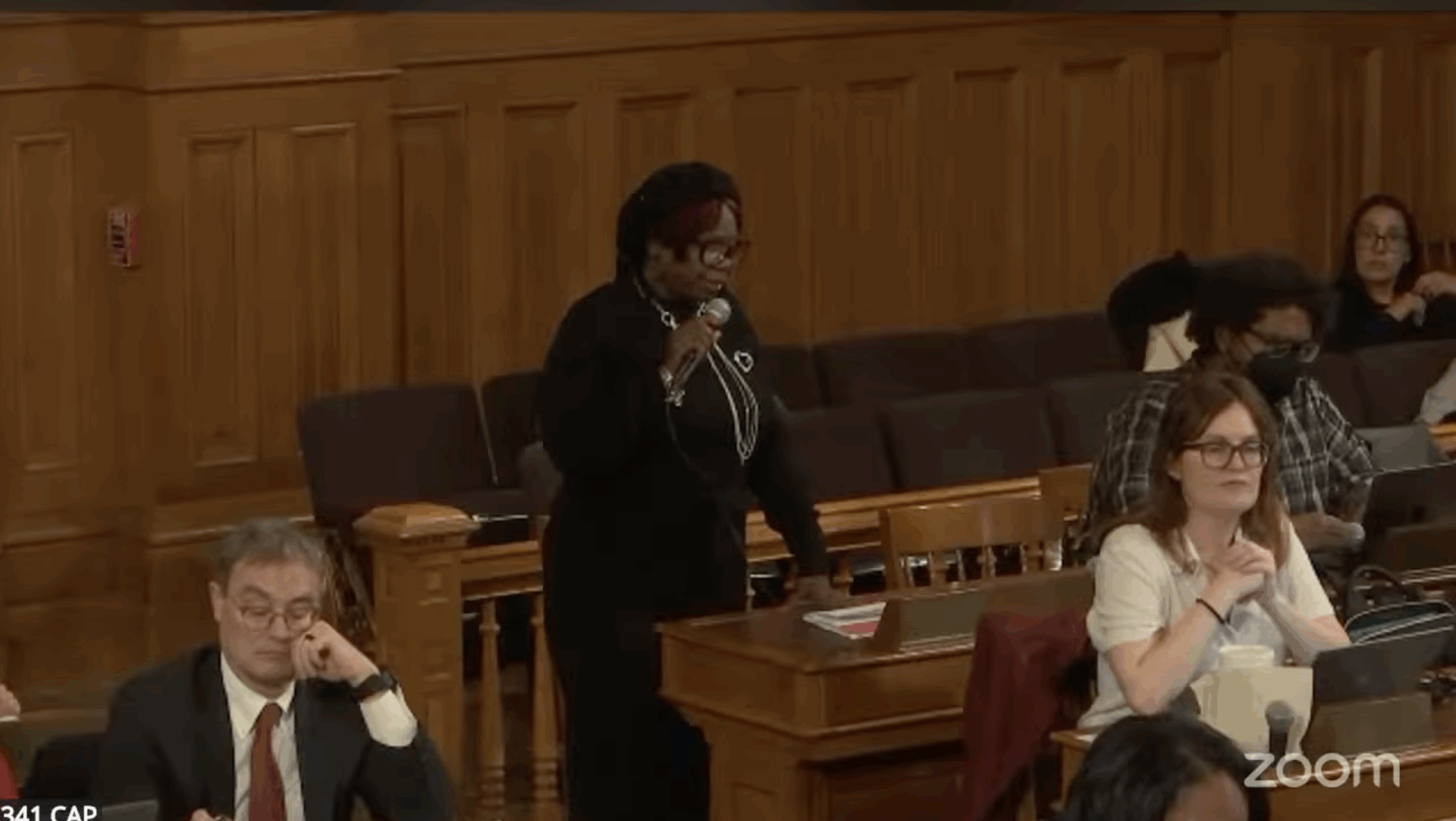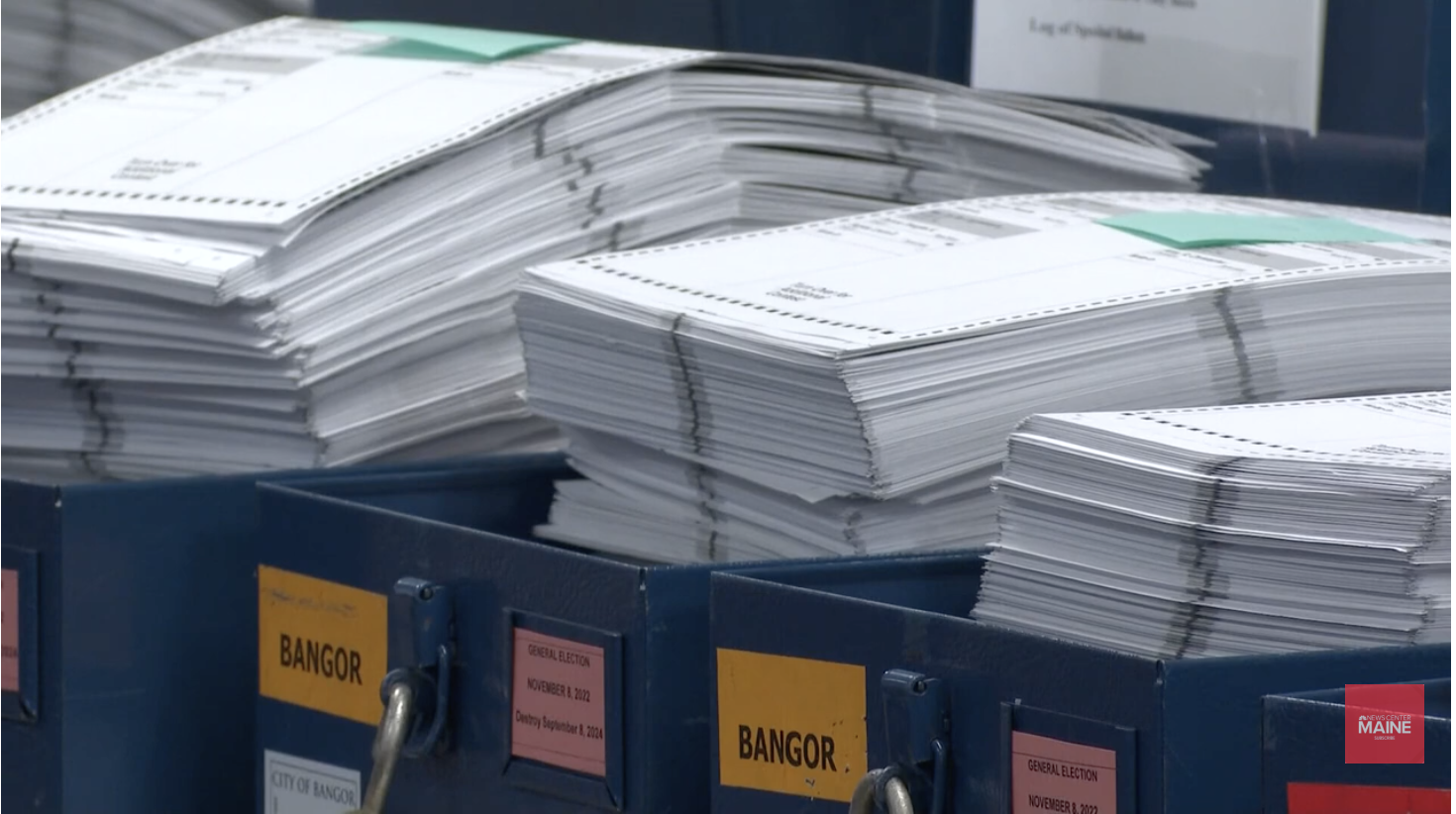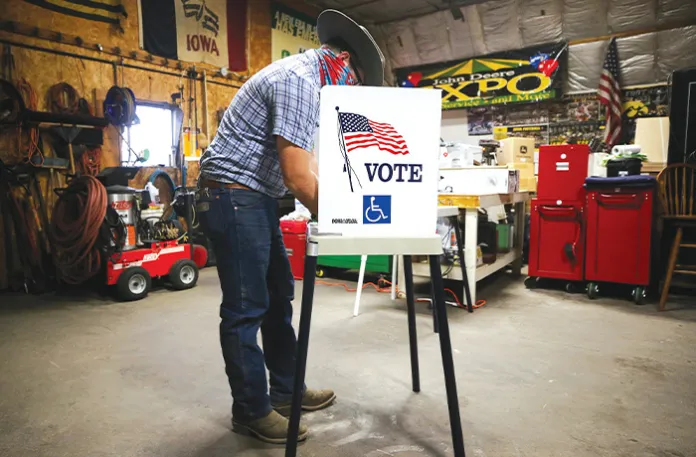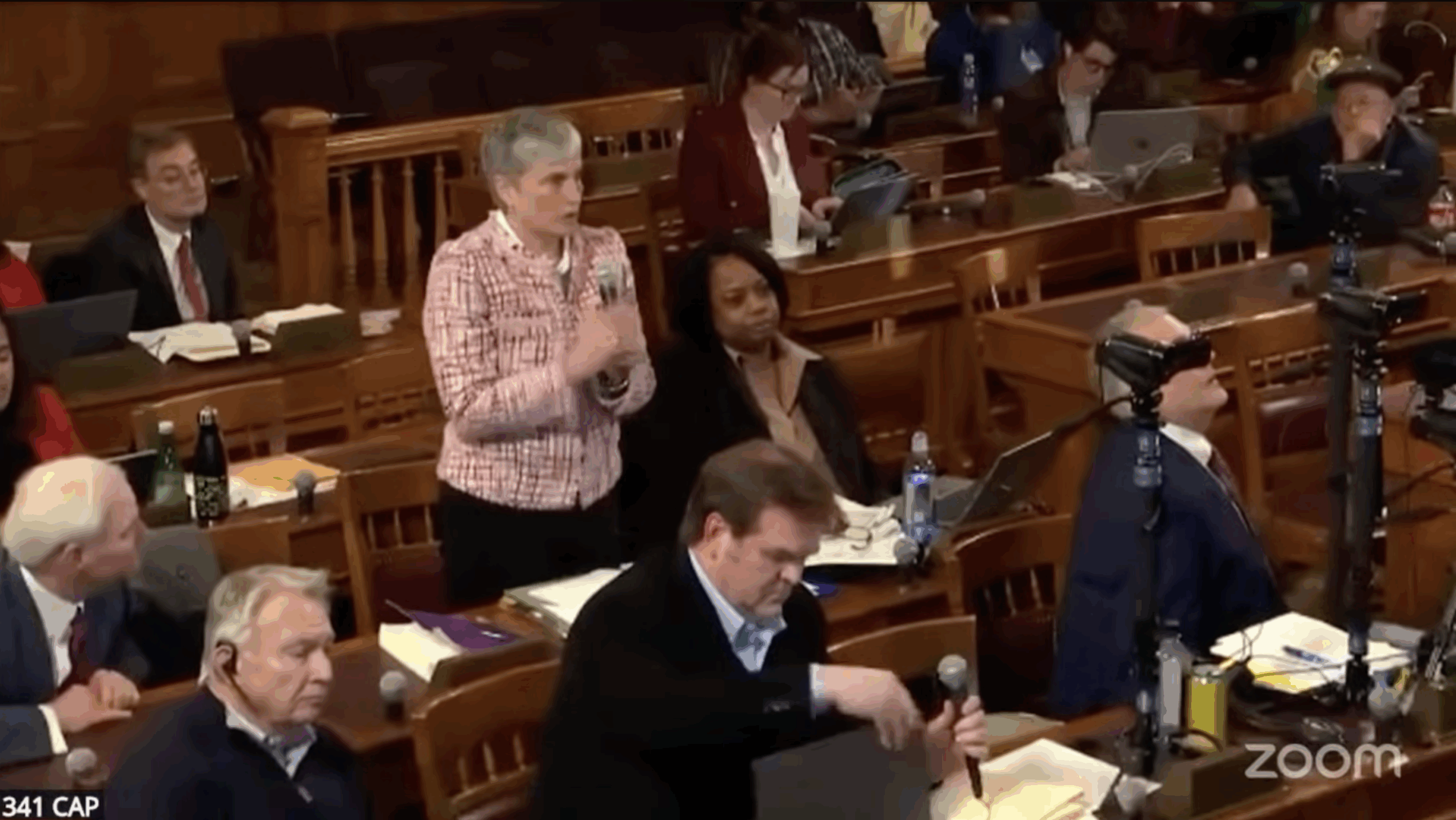‘Never-Resided’ Citizens Abroad Might Be Voting With Your Address
The excerpt discusses the voting rights of “never-resided” voters—individuals who are U.S. citizens by birth to American parents but have never lived in the United States. Such voters can participate in absentee voting in many states, including Alaska, Arizona, California, and others, without having a current U.S. address. Instead, they can register to vote using the last address associated with their family, which helps determine their voting jurisdiction.
Key legislation supporting these voters includes the Uniformed and Overseas Citizens Absentee Voting Act (UOCAVA), which provides a framework for their registration and absentee voting processes. The Federal Post Card Application (FPCA) can be used to register and request ballots, allowing for requests via email without needing to provide a physical address for election mail.
The article also mentions that the Military and Overseas Voter Empowerment (MOVE) Act ensures that states accept the FPCA. It highlights concerns about the verification of voters’ residency and citizenship, especially when voting occurs via email. The Federal Voting Assistance Program (FVAP) assures voters that the information provided on forms is used to verify eligibility, although states ultimately determine adherence to residency requirements.
Interestingly, despite many Americans being advised to return home during the COVID-19 pandemic in 2020, UOCAVA voter participation surged, with over 913,000 ballots counted, marking a significant increase from previous elections. Despite uncertainty about the exact number of U.S. citizens living abroad, the regulations in place allow for participation in the electoral process, reflecting a commitment to inclusivity in democratic engagement.
How long do you have to live in the United States before you can vote here? You might be surprised to learn that the answer is never. People born in other countries to parents who are U.S. citizens are themselves considered U.S. citizens and may vote in U.S. elections, even if they have never set foot in the United States and never intend to.
These so-called “never resided” voters are welcome to vote absentee in all federal elections in the following states: Alaska, Arizona California, Colorado, Connecticut, Delaware, Georgia, Hawaii, Illinois, Iowa, Kansas, Kentucky, Maine, Massachusetts, Michigan, Minnesota, Montana, Nebraska, New Hampshire, New Jersey, New Mexico, New York, North Carolina, North Dakota, Ohio, Oklahoma, Oregon, Rhode Island, South Carolina, South Dakota, Tennessee, Utah, Vermont, Virginia, West Virginia, Wisconsin, and the District of Columbia.
The Uniformed and Overseas Citizens Absentee Voting Act (UOCAVA), passed by Congress in 1986, allows absentee voting by members of the U.S. military and Merchant Marine, their family members, and U.S. citizens residing outside the United States.
The rule has been around for decades, but in recent years, UOCAVA voting has displayed some anomalies.
‘Even If the Residence Is Home to Other Registered Voters‘
How do never-resided voters get a ballot without possessing a U.S. address?
Application instructions advise never-resided voters to ask family members or check old records to find the last address their parents lived at. The instructions make it clear the address is used to determine your voting jurisdiction but not for sending election mail.
“Your U.S. voting residence address is used to determine where you are eligible to vote,” the Federal Voting Assistance Program (FVAP) 2024-2025 Voting Assistance Guide advises. “Your election office will not send any voting materials to this address.”
It goes on to say that even if someone else lives at that address now, or the house was torn down, that’s fine because election offices only use voting residence address to determine if you are eligible to vote in that jurisdiction and which ballot to send.
A fact sheet from the U.S. Election Assistance Commission says it this way: “UOCAVA voters must be registered to vote at an address in the US. The voter may not have lived in that residence for a number of years, and they may be properly registered to vote at that address, even if the residence is home to other registered voters.” The fact sheet offers guidance to election officials. “Occasionally, current residents may receive election mail for a UOCAVA voter who no longer lives at that address. Election officials should explain to the current resident that a military or overseas voter is eligible to use their former physical residence for voter registration purposes, even if they typically receive mail overseas.”
In 2009, Congress passed the Military and Overseas Voter Empowerment (MOVE) Act, sponsored by Sen. Chuck Schumer, D-N.Y. It requires all states to accept the Federal Post Card Application as both a voter registration form and an official request for an absentee ballot.
The postcard allows wannabe voters to request ballots by email. That means no postmark. That means you can request your UOCAVA ballot from anywhere. It is hypothetically possible to sit in Anytown, U.S.A., and request that a UOCAVA ballot be emailed to you, while claiming you are in another country. And in 31 states, certain voters can submit their ballots electronically to the state to be counted.
The Federalist asked the Federal Voting Assistance Program how a voter’s location and citizenship are verified when people vote by email; is there a procedure to individually investigate each ballot, or is it on the honor system?
“We would refer you to the respective states for details on how they handle verification processes,” replied Joshua Wick, a Department of Defense spokesman. The Federalist then asked if FVAP offered any guidance for states. FVAP Director Scott Wiedmann answered in an email the next day.
“FVAP coordinates with states to ensure that when completed correctly, the information provided by the voter on the Federal Post Card Application form and the Federal Write-In Absentee Ballot will be sufficient to process to the form and determine if the voter meets the residency requirements for that jurisdiction,” Wiedmann told The Federalist. “This includes the signed voter affirmation stating that all the information provided is true under penalty of perjury. The state or local election office is the ultimate arbitrator as to a voter meeting the state’s residency requirements.”
The Federalist asked election officials in Arizona, Michigan, New Jersey, and Rhode Island — all states that allow never-resided citizens to vote — the same question and did not receive a response.
According to federal documents, “unlike in 2018 and 2016, email was the most common mode of UOCAVA ballot receipt in 2020,” but many voters still mailed their ballots in.
Fuzzy Math
In 2020, UOCAVA voter participation increased dramatically compared to previous years. That is despite the fact that during the 2020 Covid pandemic, the United States advised Americans abroad — business people, study-abroad students, missionaries, and holiday travelers — to return home.
The Department of State also ordered many employees to return home, and contracted airplanes to help them get home. As of June 1, 2020, the department had arranged to bring home 101,386 Americans on 1,140 flights from 136 countries. Across the globe, streets were empty as people retreated from the pandemic.
Despite an unprecedented number of Americans returning to the states where they could vote on their home turf, the number of UOCAVA ballots counted in the 2020 election was an astronomical 913,734.
That is a 36 percent jump in UOCAVA participation compared to 2016, when 671,243 UOCAVA ballots were counted.
How many U.S. citizens are abroad? We can’t say for sure. The federal government can only estimate that number — and it does — in the Overseas Citizen Population Analysis (OCPA), an annual report to Congress by the Federal Voting Assistance Program (FVAP), which works to encourage more UOCAVA voting.
The 2020 OCPA report, published in September 2021, estimates there were 4,543,214 U.S. citizens living overseas in 2016. But the 207-page report didn’t measure the number of U.S. citizens living abroad in 2020. “The most recent population estimates are the ones reported in the 2018 OCPA,” the 2020 report says on page 3. “There are no new estimates reported in the 2020 OCPA because there was not enough available data to perform new estimates at the time this report was written.”
The 2020 OCPA report lists a 2018 total overseas population of 4,779,929, and incredibly, uses that estimate for 2020, despite droves of Americans returning home. But even if that 2018 number they used for 2020 is accurate, it is 236,715 more people (a 5 percent increase) than in 2016, at a time when common sense tells us there were fewer U.S. citizens abroad. In 2022, the FVPA estimated that there were 4.4 million U.S. citizens abroad, a decrease of 8 percent compared to 2018/2020.
It makes that 36 percent jump in UOCAVA voters another unexplained anomaly of the 2020 election.
For more election news and updates, visit electionbriefing.com.
Beth Brelje is an elections correspondent for The Federalist. She is an award-winning investigative journalist with decades of media experience.
" Conservative News Daily does not always share or support the views and opinions expressed here; they are just those of the writer."




